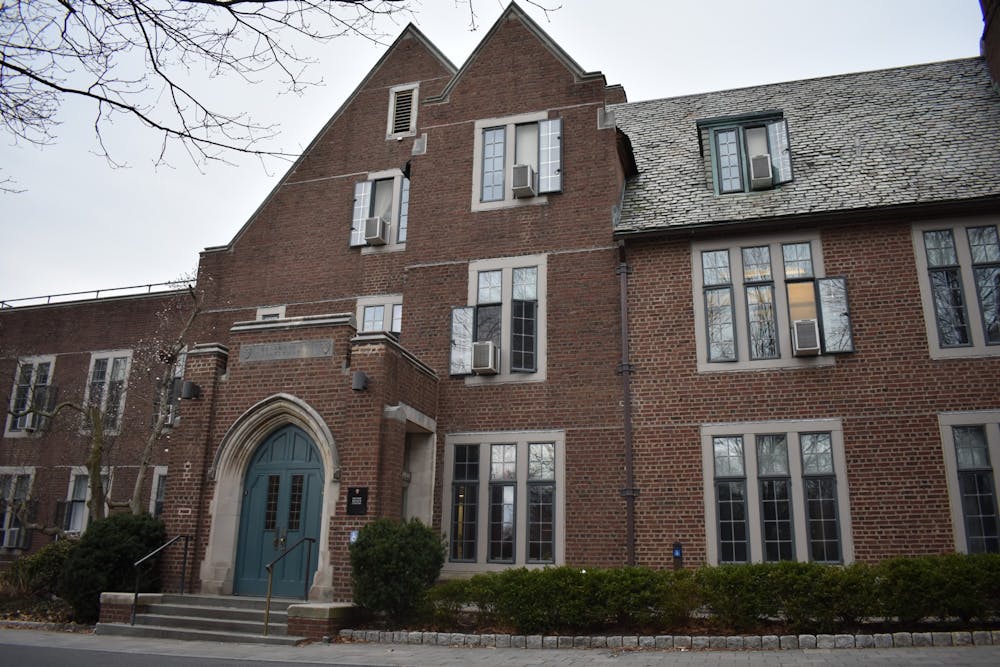This fall, the so-called “Freshman Flu,” or “Princeton Plague,” has swept through the student body like a wildfire. In the past few weeks, many students have suffered from symptoms ranging from coughs and runny noses to fevers and fatigue. Despite experiencing these COVID-19-like symptoms, our COVID-19 tests come back (thankfully) negative. Instead of holing up in our dorm rooms with Benadryl and packets of Emergen-C, we’ve dragged ourselves to classes and precepts to avoid racking up absences. As a result, germs have spread, and countless students have fallen ill.
In recent columns, Brittani Telfair ’22 and Ana Blanco ’23 have highlighted the failures of McCosh Health Center and academic sick policies, respectively, in helping students healthily recover from illness. We agree with their arguments, as it is becoming increasingly clear that none of the University’s current resources counter the bureaucratic and cultural flaws in their health response policy. However, we want to highlight the effects these failures have had on first-year students who have had to navigate these issues during our first few months in college.
This is not to say the Princeton administration hasn’t taken any action to address university-wide community health. For instance, University Health Services (UHS) recently hosted Flu Fest — a multi-day clinic offering free flu immunizations to students, faculty, and staff. Residential colleges have also provided localized support, including facilitating communications with professors and even distributing care packages. Yet students are still getting sick, and when current University policies force students to prioritize either health or education, this fosters a stress culture and creates inequitable learning conditions that any number of care packages can’t fix.
For first-years, these policies teach us that academic success is more valuable than our health. With no prior college experience to teach us differently, such sacrifices become normalized, setting a dangerous precedent for how we value our well-being throughout our college career. To counter this, the University should utilize the lessons it learned from remote education to alter attendance guidelines and promote a safe and accessible learning environment in a post-quarantine world.
Outside of pandemic-related precautions, attendance requirements are left up to the discretion of individual instructors. While all professors try to be understanding, University guidelines prevent them from providing alternate methods of attendance; their class policies might have variable flexibility depending on the needs of the curriculum. For many classes, two or three unexcused absences could severely impact one’s grade. When students are penalized so harshly for absences, they will make one of two choices: attend class while sick, or stay home and risk dropping their grades. Especially for first-years — unused to failure and still adjusting to Princeton's academic expectations — it is inevitable that we choose to attend.
The University should normalize providing open and unrestricted access to alternative learning channels to students of all abilities. Needing access to remote learning is nothing to be ashamed of. Simply put, one shouldn’t have to be exposed to COVID-19 to attend a class virtually. After all, if the University’s COVID-19 policies recognize virtual learning as a viable option, why can’t the administration extend this to University attendance guidelines for other illnesses?
Inadequacies at McCosh also have a disproportionate impact on first-year students, who are likely interacting with the center for the first time. McCosh serves as the primary resource for sick students; however, it has recently faced criticism for its focus on COVID-19, and inattention to daily student health struggles. For instance, we spoke with Maiya Raghu ’25, who found UHS to be “very disorganized,” citing the “difficulty in getting an appointment with them despite being incredibly sick.” Additionally, when John Wallar ’25 recently visited McCosh for a recurring cough and cold, he was instructed to take cold medication and only return if his symptoms significantly worsened.
Overall, it is clear that McCosh lacks the resources to pay adequate attention to the “Princeton Plague” while keeping a handle on the spread of COVID-19. It is an unfair burden to expect students to chase after medical treatment on top of their academic and social commitments. Especially considering the unique burden on first-year students trying to acclimate to a new place, find community, and keep up with our academics, McCosh’s negligence towards our health could alienate members of our class, making us feel unwelcome as we adjust to life in the Orange Bubble.

Some might wonder if the ‘Princeton Plague’ should be brushed off as part of the introductory transition to college. The “freshman flu” is no new phenomenon. Grace Rosenberg ’23 told us that she vividly remembers getting sick her first semester as a freshman. But she insists that “the freshman flu should not be a rite of passage,” and I agree. In Princeton’s transition to a post-quarantine “new normal,” it’s time to leave behind suffering through classes while sick.
The University’s blasé attitude toward the freshman flu is symptomatic of a larger issue. Its unsustainable subculture of academic pressure teaches us first-years that students should prioritize academic success at the cost of physical and mental health. With four long years ahead of us, it’s important for the University to explicitly teach us healthy habits and prioritization.
For many of us dragging ourselves to lectures as we cough through our nights, we urge the administration to alter their sickness policies to better ensure a safe campus and healthy academic culture. As new Tigers enter our community, excited and impressionable, it’s important to set the right precedent for the rest of their time at Princeton. The pandemic has given us a chance to challenge our current system: Let’s learn from COVID-19 and start prioritizing student health.
Tara Shukla is a first-year from Highland Park, N.J., who is interested in education policy and economics. For her, the worst part of Princeton is the dementors. Tara can be reached at ts6796@princeton.edu.

Laya Reddy is a first-year intending to concentrate in Economics with certificates in Finance and Journalism. She enjoys watching sitcom reruns and devouring poetry in her free time.








